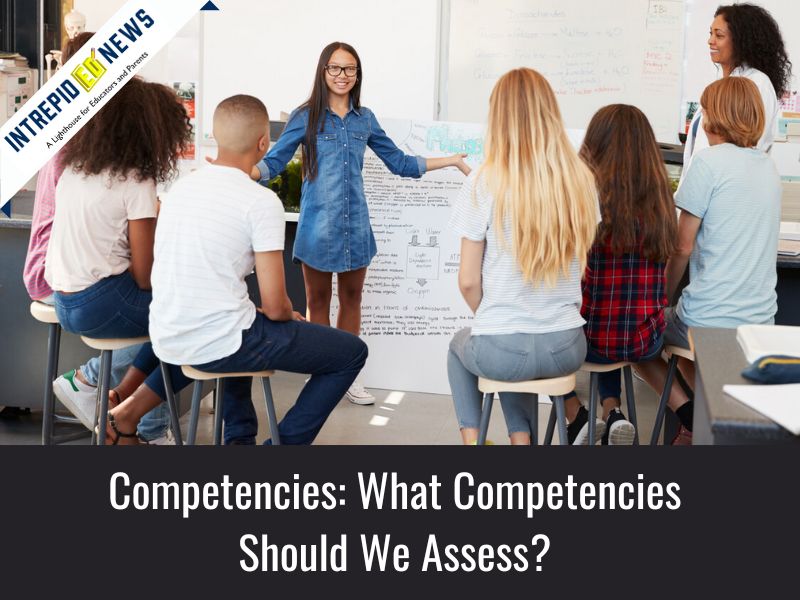This article is republished with permission from IntrepidEd News
Devin Vodicka
As I wrote in Learner-Centered Leadership, the post-industrial education system will require post-industrial measures of success. We can no longer rely on letter grades and seat time as proxies of learning — we are at a stage where evidence of mastery learning is clearly a better way to represent competence. A competency-based, learner-centered approach provides opportunities to extend beyond traditional academic outcomes and take into account alternative measures of progress, including habits and skills in social-emotional learning domains that will be essential for lifelong learning. We believe that post-industrial measures of success should also reflect the reality that individuals are situated in communities and have the responsibility to contribute not only to those communities but also to the broader social system.
I was able to conduct a research project that included a literature review, interviews with thought leaders, and input from students. The outcome was our Impact Framework which synthesizes various outcome models and incorporates the suggestions and feedback that surfaced through the process. These whole-learner outcomes include agency, collaboration, and problem-solving.

Agency is about students demonstrating an ability to formulate their own unique goals and meet them through planning, engagement, assessment, and reflection. Self-generated goal achievement is an important way for learners to develop capacity, self-management, and a sense of efficacy. Knowledge and expertise are foundational elements of agency and therefore we must also include competency-based evidence of mastery learning in academic domains such as language and literacy, mathematics, social studies, sciences, the arts, and physical wellness.
Think of collaboration as an umbrella term used to describe the set of habits and skills that are critical for social interaction. There are various models such as the Character Lab set that includes self-control, grit, curiosity, growth mindset, gratitude, purpose, social intelligence, and zest. Or Covey’s “The Leader In Me” habits that include being proactive, beginning with the end in mind, putting first things first, thinking win-win, seeking first to understand and then be understood, synergizing, and sharpening the saw.
Problem-solving is where the application of agency and collaboration results in improvements for the benefit of a community. Problem-solving can be grounded in project-based learning, service learning, challenge-based learning, or any number of models that extend learning to authentic, real-world contexts. As an example, many schools are orienting students to the United Nations Sustainable Development Goals to provide a framework for contextualized problem-solving.
In addition to providing glimpses into the future of assessment through research and ideation, there are many examples of these practices already underway in schools and districts across the United States. Tamim Academy, a network of Jewish Day Schools and one of our partners, has developed a set of learner outcomes that closely resemble the Impact Framework. Design 39 Campus (Poway Unified School District, San Diego County) and Odyssey STEM Academy (Paramount Unified School District, Los Angeles County) make extensive use of holistic learner profiles. El Segundo Unified School District (Los Angeles County) uses a scorecard aligned to their graduate profile to assess holistic competencies.

Whole-Learner Outcomes, Odyssey STEM Academy, Paramount USD, California
Intermediaries such as the San Diego County Office of Education are developing “universal transcript collaboratives” oriented around digital diplomas. Higher education innovators such as the Minerva Project are developing high school programs that orient around transferable skills based on the learning sciences. Coursera and Google are rolling out certification programs to compete with traditional university models. Employers like Walmart are creating “lifelong learning” programs.
The changes are already underway. These innovative models are solutions for the invention opportunity in front of us now. Making these exceptional experiences the norm is on the horizon.


























